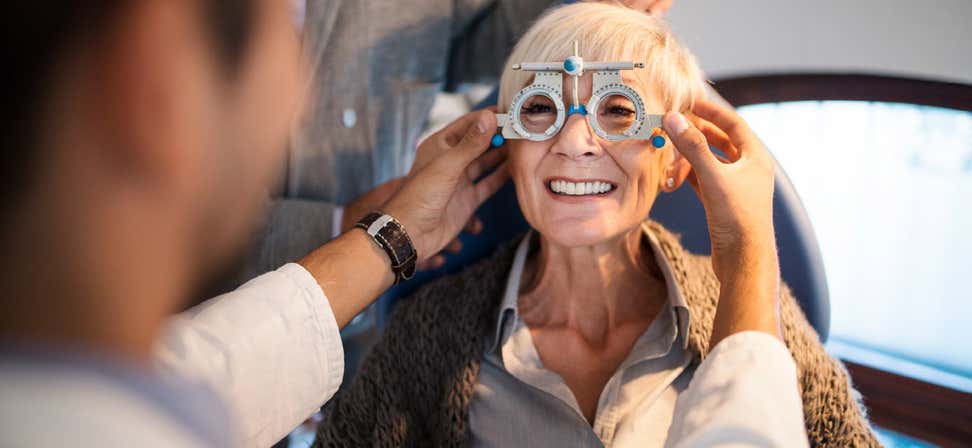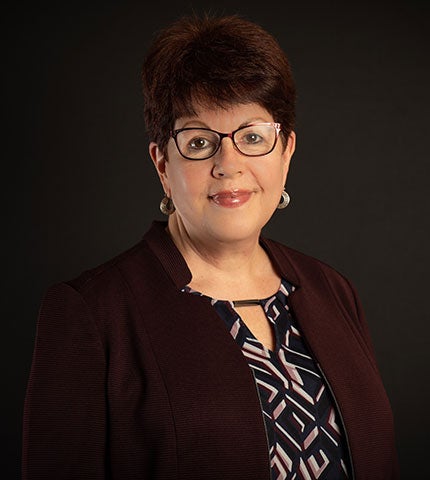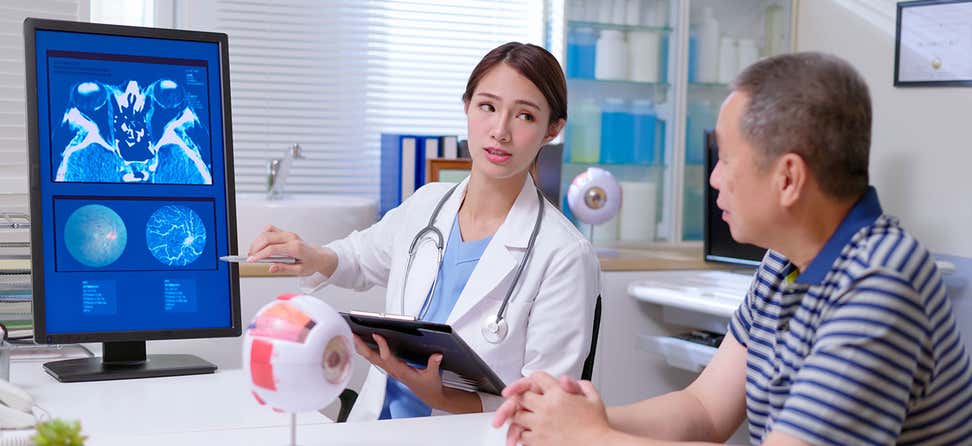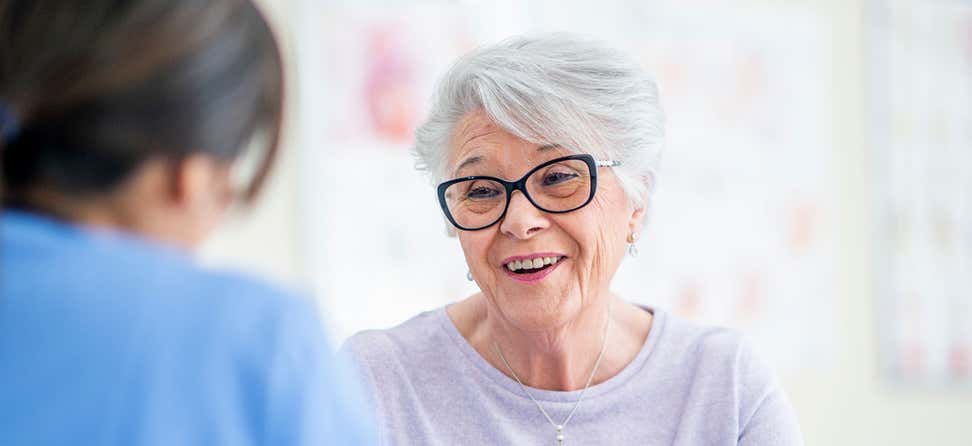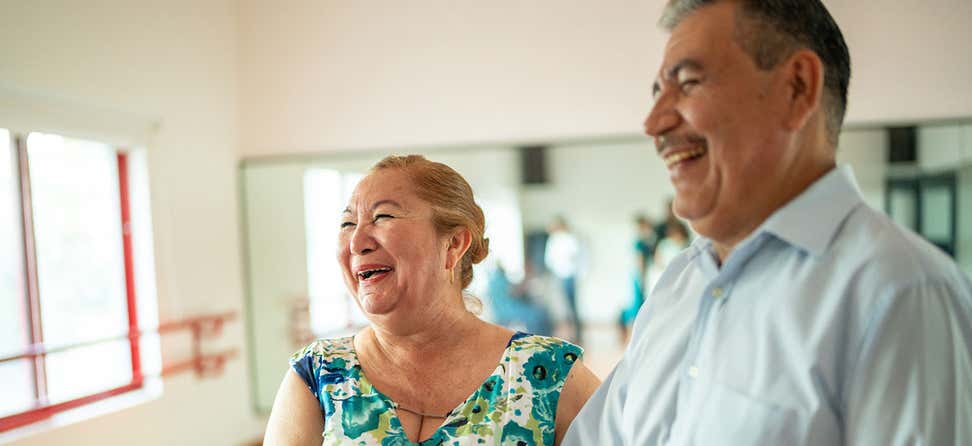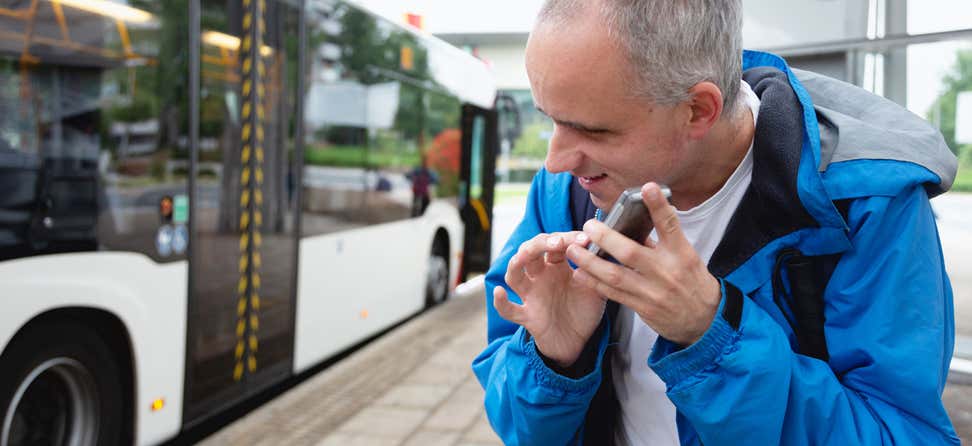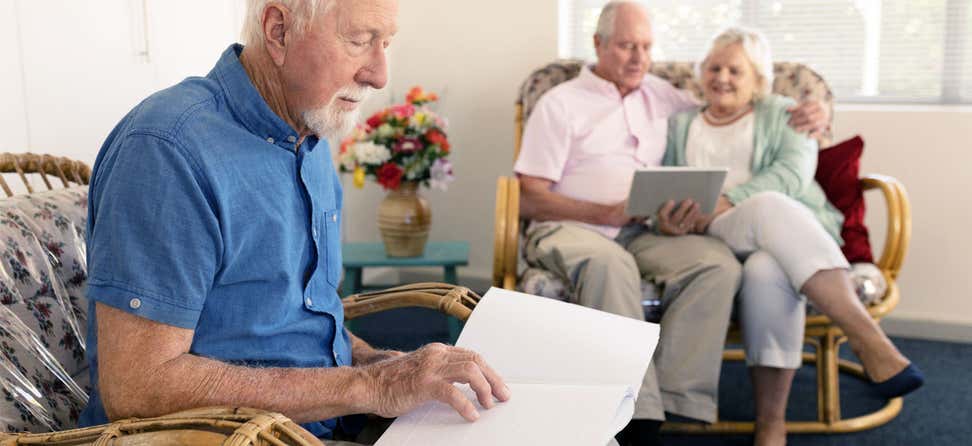Key Takeaways
Referrals to a local vision rehabilitation agency can have a big impact on the quality of life of people with blindness or low vision.
Among the many areas vision rehabilitation can strengthen medical care relationships: By fostering physical health and independence and bolstering mental health support.
Vision rehabilitation can help link people with financial assistance to help with prescription medications and medical treatment.
Vision loss can significantly affect overall health—negatively impacting physical health, mental health, functional independence, the development and management of chronic health conditions, and overall medical compliance.
Professionals have a unique opportunity to provide important strategies to adults with vision loss, their families, and caregivers to enhance their health, safety, independence, and quality of life. A key component of this support strategy can be your referrals to a local vision rehabilitation agency.
Physical health and functional independence
Older people with blindness and low vision are twice as likely to fall as people without vision loss. Accidents and serious injuries (including fractures) impact short-term health and can have long-term effects and increased morbidity. Vision loss often limits daily activities, including the ability to schedule and attend appointments.
Vision rehabilitation helps patients navigate health care systems. Orientation and mobility, a core vision rehabilitation service, trains adults with vision loss to safely travel throughout the community, enabling them to visit medical and other facilities.
Blindness and low vision can also impact the ability to communicate, read forms, conduct necessary health research, and more. Access technology, another vision rehabilitation service, helps patients use computers and specialized software to participate in virtual office visits and utilize smart devices to communicate, access information online, obtain travel directions, complete medical forms, and more. Training with other technology and aids, such as voice-activated assistants can help with appointment and medication reminders to increase overall medical compliance. Vision rehabilitation training helps clients learn to use a broad range of assistive technology, aids, and devices.
Chronic conditions and disease management
People with vision loss have an increased risk of developing chronic health conditions. Recent studies by VisionServe Alliance, the Aging and Vision Loss National Coalition (AVLNC) and The Ohio State University College of Optometry confirm the rates of blindness and low vision among older people. These Big Data Project reports highlight—at the national, state, and county level—the tremendous impact of vision loss across all social determinants of health. For example:
- Blindness and low vision are linked with a higher prevalence of chronic conditions, particularly stroke, arthritis, diabetes, kidney disease, and depression.
- Fair or poor health is reported by 51% of older people with blindness and low vision—compared to 23% among older people without blindness and low vision.
- Of older people with blindness and low vision, 36% report 14 or more days of poor physical health in the past 30 days—compared to 16% of those without blindness and low vision.
- Of older people with blindness and low vision, 18% report 14 or more days of poor mental health in the past 30 days—compared to 7% of those without blindness and low vision.
- This disparity in quality of life is repeated in activity limitation days, with 34% of older people with blindness and low vision reporting 14 or more days of activity limitation in the past 30 days—compared to 19% among those without vision loss.
How blindness and low vision can affect mental health
Blindness, low vision, and significant vision loss can dramatically restrict social activities and interactions, leading to increased isolation, anxiety, and depression. In a recent CDC study, 1 in 4 adults with vision loss reported anxiety or depression. Learn more about vision loss and its impact on mental health from the Centers for Disease Control and Prevention and the Vision Loss and Mental Health report from Prevent Blindness.
To supplement mental health support, many local vision rehabilitation agencies offer support groups to share vision-related concerns and challenges with others facing similar issues. Added vision rehabilitation services, including independent living skills training, also has a positive impact on daily activities, safety, independence, and emotional health.
Vision loss can hurt medical compliance
Vision loss can also significantly impact household income, with 37% of older people with blindness and low vision having annual incomes below $20,000. Financial constraints can adversely impact medical compliance, including office visits, treatment, and medications—all contributing to higher prevalence of chronic conditions and poorer health-related quality of life.
Supporting people with vision loss who want to work later in life
Continued employment for older people with blindness and low vision can provide tremendous emotional and financial rewards. According to Gallup, 41% of American workers expect to work beyond age 65 (30 years ago, it was 12%). Vocational rehabilitation, another form of vision rehabilitation training, provides crucial support for people with vision loss who want to continue working or those seeking employment.
More ways to help people with blindness and low vision
Local agencies can also help people with blindness and low vision with various forms of financial assistance. Added programs and support can help clients access treatment and prescriptions, and depending on the scope of vision loss, people may be able to access local vision rehabilitation services at no cost.
You can play a pivotal role in providing vision rehabilitation referrals for people you support with blindness and low vision. Support is just a call or click away. Visit Time to Be Bold to locate your area’s vision rehabilitation services and other crucial resources. Speak with someone at the APH hotline for support, explore practical coping strategies for everyday tasks, engage in remote discussion groups, and access free online resources at the APH Connect Center and VisionAware.
This project was supported, in part by grant number 90CSSG0048 and 90FPSG0051 from the U.S. Administration for Community Living, Department of Health and Human Services, Washington, D.C. 20201. Grantees undertaking projects under government sponsorship are encouraged to express freely their findings and conclusions. Points of view or opinions do not, therefore, necessarily represent official Administration for Community Living policy.


